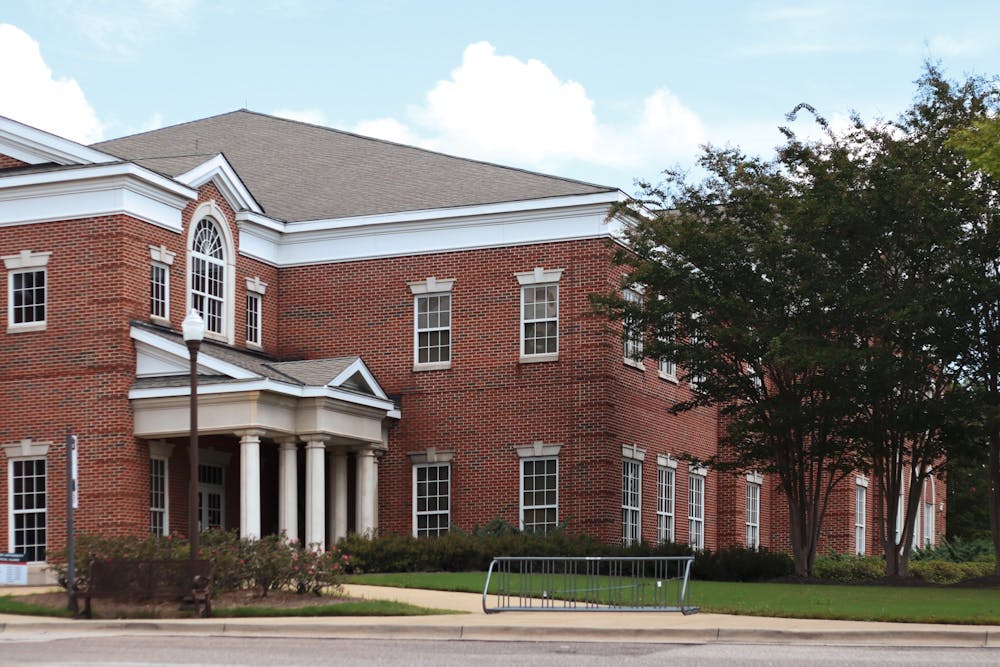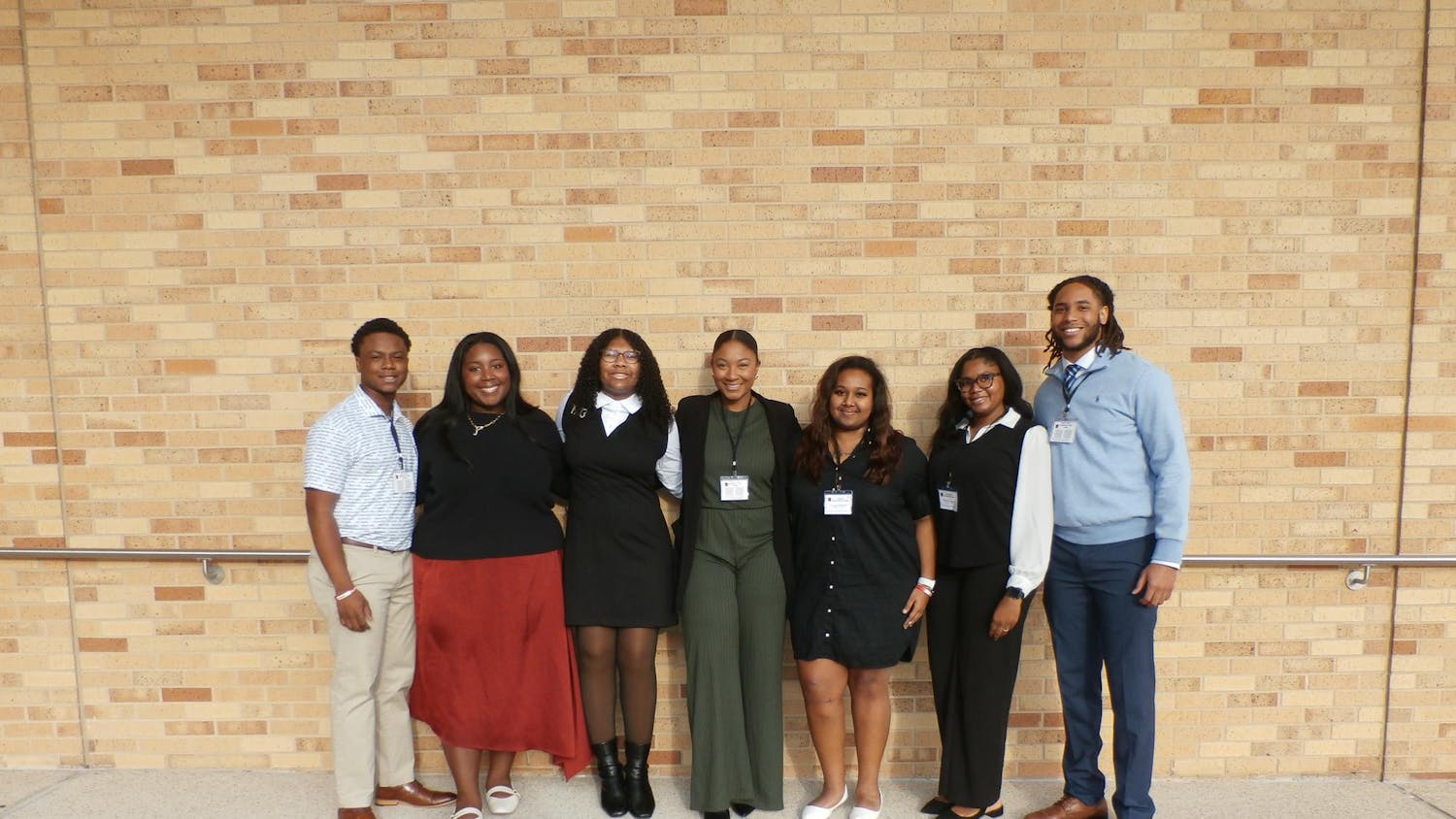Several vaccines for COVID-19 have made headlines in recent weeks because of their high efficacy. At Provost Bill Hardgrave's second virtual town hall over Zoom on Tuesday afternoon, Auburn faculty had questions about how vaccines might be distributed at the University next semester as well as who might be prioritized.
Dr. Fred Kam, director of the Auburn University Medical Clinic, was in attendance at the town hall and shared what vaccines might look like at the University in the spring.
"Every person that we can get vaccinated that wants to get vaccinated, we're going to try and vaccinate," Kam said.
One concern with the Pfizer-BioNTech vaccine, which Kam said should be the first licensed for use in the U.S., has been the need for ultra-cold freezer storage to keep it effective. Kam said he became aware that East Alabama Medical Center recently obtained one ultra-cold freezer. The University, on the other hand, was already in possession of several capable freezers, he said.
"We are a research facility, so more than a couple of months ago, we already identified some ultra-cold freezers that exist on campus," Kam said. "We are in a very strategically positive situation — that has been communicated clearly to the Alabama Department of Public Health."
The University will need to report information to ADPH about each freezer, like brands and serial numbers, before being authorized to use them for vaccine storage, according to Kam. After this, Auburn will allow the most vulnerable people on campus to receive their shots first as well as those who cannot physically distance for instruction and work.
"You have people who are in the vet school ... [who] can't six-foot distance when they're operating on an animal or they're doing radiation therapy," Kam said. "Likewise, we have nursing students and pharmacy students who are in clinicals that we have to consider."
Kam said those in education may begin receiving vaccines as early as February, but this is largely dependent on vaccination process and delivery. However, he said he thinks there could be "hiccups" as millions of people receive their shots like new reactions that did not occur in vaccine trials, which were delivered on a smaller scale.
Kam was asked whether the campus community might able to receive vaccinations through the Med Clinic similar to how rapid COVID-19 tests are delivered. He responded that the clinic will "try to remove every barrier [it] can to make the vaccine available." Vaccines could be delivered by the clinic, the School of Nursing and the Harrison School of Pharmacy, and the University is prepared to enlist the help of retired volunteers skilled at providing shots, according to Kam.
"If we have to run it from 7 a.m. to 11 p.m., we'll do what we can," he said. "I am not interested in hoarding a vaccine. I'm interested in ... making it available in the priority list afforded."
The University may provide several locations for people to receive vaccines as well as drive-thru testing, but Kam said the latter method of delivery could be more of a risk as some become drowsy after receiving vaccines and are not safe to continue driving.
Some people may refuse to take COVID-19 vaccines once available for varying reasons, and Kam was asked how this might affect the University and if policies would be implemented regarding this. He said such decisions were above his level of oversight; people have the right to decline vaccines but may need to make up for their refusal in other ways.
"Just like it is for other vaccines, people have their rights," he said. "But when their rights infringe on others' safety, we need to look at what needs to be done to mitigate [this]."
As an example, Kam said Med Clinic staff who declined vaccines before the pandemic were required to wear masks during flu season. He said only one person out of the clinic's staff of 100 declined to vaccinate, though the staff member eventually gave in.
Decisions about immunizations at public education institutions like Auburn are ultimately made at the state level, Kam said. Auburn students are required to receive vaccines for tuberculosis and measles, mumps and rubella before they can enroll for freshman-year classes, but the University can only recommend vaccination against diseases like Hepatitis A and HPV.
"It's going to be similar for the COVID vaccine unless the state, the governor and the legislatures pass it as mandatory," Kam said.
Finally, Kam was asked about how "vulnerable" individuals on campus will be identified and prioritized to receive the vaccine. He said if there is a limited supply of vaccines, those with conditions like heart issues may be asked to submit medical documentation to be among the first to be vaccinated.
"There will probably be a form or some mechanism for them to produce the verification of that so that they will be higher up on the priority list," he said.
Kam said if people cannot produce documentation, they might instead be allowed to provide their medication as proof of any health conditions. Age will also likely be considered as a risk factor that necessitates someone receiving a vaccine earlier, he said.
"One thing that I've learned about this pandemic is you have to flexible," Kam said.
Do you like this story? The Plainsman doesn't accept money from tuition or student fees, and we don't charge a subscription fee. But you can donate to support The Plainsman.

Tim Nail, junior in journalism, is the campus editor for The Auburn Plainsman.





